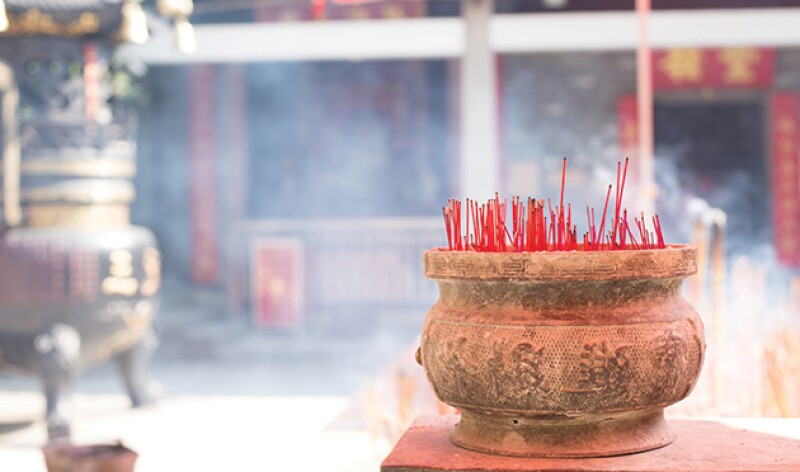
With the fourth amendment of its Patent Law nearing completion, China will soon move ahead in perfecting its IP protection system and improving patent enforcement. The amendment is aimed at solving difficulties patent owners have had in gathering proof and in dealing with long time cycles, high costs, low compensation and general ineffectiveness, which patentees complain about when enforcing their patent rights. A number of measures have been added to the drafted amendments, which include strengthening patent protection, increasing law enforcement efforts, establishing sound long-term mechanisms to combat patent infringement, promoting the combination of patent administrative enforcement and judicial protection, boosting law enforcement efficiency, and reducing the costs of protecting patent rights, which will guarantee the interests of patentees.
However, during patent trials, patentees, especially those from abroad, who are enforcing their rights, should consider five tactics they should adopt to maximise their chances of success.
Monitor the market
Because of China's vast territory, large population and highly developed production and manufacturing market, it usually takes foreign patent owners a long time to find and investigate patent infringement. In the instances where foreign patentees have established a manufacturing plant in China, or have signed an exclusive patent licence contract with a Chinese company, the patentees can entrust the manufacturing plant, the Chinese company, or a local IP law firm to oversee the patent protection and monitoring work.
Proper patent protection monitoring includes both keeping an eye on all patent applications filed by competitors and watching for suspected infringing products being sold through networking platforms or by business entities. Through patent protection monitoring, a target company suspected of infringing patent rights can be detected in time. Sometimes, once a patent application similar to a granted patent owned by a foreign patentee is filed, a preliminary judgment can be made that someone is very likely to be copying the patented product of the foreign patentee. In such a case, the foreign patentee should take appropriate measures such as filing public comments against the competitor's patent application in a timely manner to avoid the copied patent being granted to the competitor or initiating the patent invalidating procedure. Meanwhile, an investigation of the target company's production and sales can be made to discover if there is an infringement of the foreign patentee's rights.
Furthermore, real-time monitoring of the competitor's suspected infringement enables the foreign patentee to initiate a licensing negotiation.
Collect, notarise and preserve evidence
As a professional law firm that provides IP protection services to domestic and international clients, Kangxin Partners frequently receives instructions from foreign clients to send warning letters to alleged Chinese patent infringers. However, in many cases, it is not favourable for foreign clients to send warning letters directly to the target person or company that infringes their patent rights. If their purpose is to stop the infringement, and the suspected target is a small-scale patent infringer, the patentee might consider sending a warning letter through a Chinese IP law firm to handle this issue.
|
|
"Proper patent protection monitoring includes both keeping an eye on all patent applications filed by competitors and watching for suspected infringing products being sold" |
|
|
But for more serious cases of patent infringement, especially those cases in which patentees are expecting compensation from the infringing party for the economic losses caused by the infringement, the general steps to take include investigating the infringing behaviour and the products of the infringing party first, and then notarising the evidence of infringement and the facts including notarising webpages of the sales, notarising the purchase of the products, as well as collecting evidence of infringement to identify the infringement and claim compensation for it during litigation.
To resolve the issue of low compensation, the fourth set of amendments to China's Patent Law have added punitive damages and compensation for wilful patent infringement. This will increase the compensation awarded by two to three times the original amount. The upper limit of statutory damages for patent infringement also has increased up to Rmb 5 million (US$765,000).
However, according to the actual patent infringement cases heard by the People's Court, the key reason why the low level of compensation exists is that the patentees are often unable to provide sufficient evidence to support the claimed amount of compensation. Therefore, before taking any legal action against patent infringement, in addition to evidence collection and notarisation, by applying for preservation of the evidence before filing a patent infringement lawsuit, patentees should also obtain enough information and evidence of the infringement using the power of the courts, which will support the claims of infringement indemnification.
Consider administrative action
Patent protection in China is offered through judicial protection and administrative action, which form parallel systems. This means that in addition to the common practices that are used to solve patent disputes through civil action, patentees could ask the local Intellectual Property Office to handle disputes or perform mediation without claiming compensation. The local Intellectual Property Office, being fast, low cost and efficient, is usually more proactive, flexible and direct in patent protection than judicial protection.
But with the year-on-year increase in patent infringement cases in China, the speed of some local Intellectual Property Offices in certain areas in handling patent disputes has been reduced by the lack of manpower, which has extended the case time to two or three years. This means that, even if patentees want to stop competitors from infringing their patents in time, the patentees should determine what the local Intellectual Property Office case processing cycle may be first and then determine whether or not to utilise patent administrative action enforcement protection. If a large backlog in the local Intellectual Property Office is discovered, patentees should abandon administrative action and reach out directly to the People's Court for judicial protection.
Use patent evaluation reports
The Chinese utility model and design patent system is similar to other countries' patent registration systems, which do not go through substantive examination of patent applications before granting patent rights. This has made utility model and design patent rights unstable. Correspondingly, China's Patent Law provides patent evaluation through a reporting system. Patentees or interested parties can ask the State Intellectual Property Office to issue a patent evaluation report after the search, analysis and evaluation of a utility model or design patent in cases where this is a patent infringement dispute. The People's Court or the local Intellectual Property Office may also ask the parties in the patent infringement dispute to show a patent evaluation report.
Some patentees tend to start the process of patent litigation spending a large amount of money and effort without assessing the strength of their own patents, and then realise that their patents lack novelty or inventiveness. The People's Court will also suspend a trial when the other party presents a negative patent evaluation report and files a patent invalidation before the Patent Reexamination Board. This makes it very important that patentees assess the strength of their patents before taking any legal action. It can be done either by obtaining an unofficial report through a Chinese IP law firm or by applying directly to the State Intellectual Property Office to issue a patent evaluation report.
Record your rights with Customs
Foreign patentees who have already acquired Chinese patent rights may apply to China's State General Administration of Customs to record their IP. With Customs recordal, patentees will be sent a written notice immediately by Customs when any suspicious patent infringement import and export goods are found that match their records. Patentees may also ask to detain suspected infringing goods after being informed of the relevant information. Customs recordal measures are especially beneficial to those patentees whose competitors' products are sold in countries other than China.
|
|
"To resolve the issue of low compensation, the fourth set of amendments to China’s Patent Law have added punitive damages and compensation for wilful patent infringement" |
|
|
It is worth noting that China's State General Administration of Customs has suspended the official fees for keeping IP records at Customs from November 1 2015. For the cost of having Customs take action, patentees may add also the losses they incurred for Customs warehousing, storage and disposal when calculating the reasonable expenses paid to stop the infringement after identification during litigation and when making compensation claims against infringers.
Since the implementation of China's basic national policy of reform and opening up, China has become one of the most popular investment opportunities for developed countries. The economic cooperation and exchange between China and other countries in the world have also increased over the years. When patent infringement occurs, the foreign patentee can easily choose an appropriate IP law firm during their investigations in China. The following factors are very important when choosing a Chinese IP law firm: reputation, service quality and reasonable expenses. By selecting an appropriate Chinese IP law firm, foreign patentees will have access to real-time monitoring of the trends of competitors and have their legal rights and interests safeguarded through timely investigation, reliable infringement analysis, and trusted representation in patent infringement litigation.
Guiming (Gary) Wu |
||

|
|
As a senior patent attorney for over 20 years, Wu is highly experienced in patent prosecution, invalidation, and due diligence in a wide range of technical fields. Since 1991, he has successfully handled a large number of patent applications and IP disputes involving patent infringement and patent invalidation for both foreign and domestic clients including Fortune 500 entities. His clientele includes Haier, Gree, ZTE, Samsung, LG, Toshiba, and Unilin. Wu has written many articles in both Chinese and international journals such as Electronics Intellectual Property, World Trademark Review, Managing IP’s China IP Focus, and China Intellectual property Newspaper. He has also been an active speaker and moderator at a number of international conferences and seminars, sharing his knowledge and experience of patent practice in China with audiences from all over the world. In 2012, he was named in the Top 30 Leading Patent Attorneys in China by China Intellectual Property News. He joined Kangxin Partners in 2000 and is a member of the All-China Patent Attorneys Association, the Beijing Patent Attorneys Association and the Committee on Enforcement of the Chinese National Group of AIPPI. |











